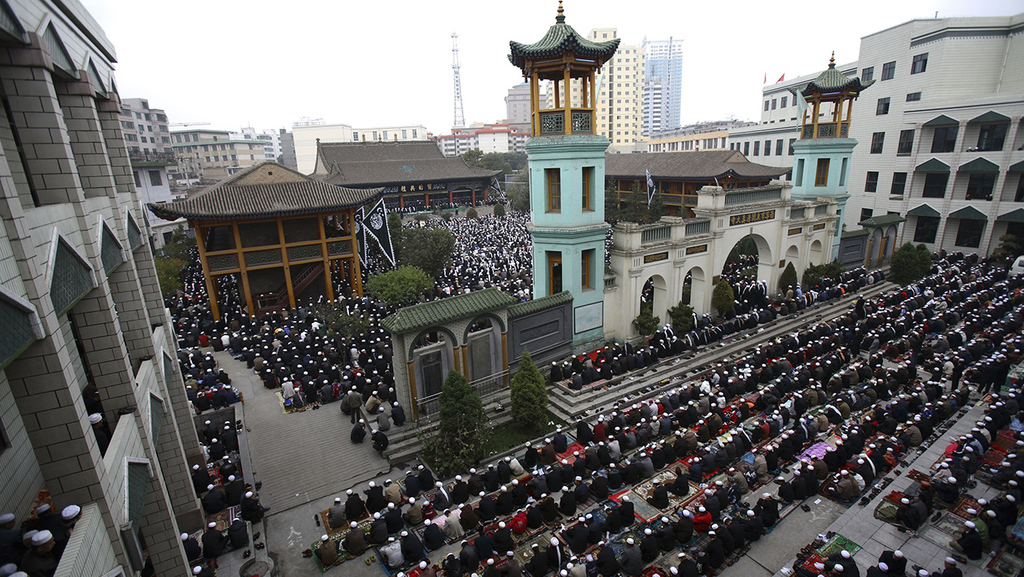Getting your Trinity Audio player ready...
The best way to get everyone to live in harmony with everyone else, we are told, is higher education. Maybe not.
For decades, we were taught to believe that hatred is linked to primitiveness – endemic, we thought, to blue-collar workers, ditch diggers, and rural folk.
Tolerance was a byproduct of deeper, more refined thinking and noblesse oblige. Education was the shortest route to the higher moral ground.
3 View gallery


Anti-Semites march in Charlottesville, Virginia in 2017, chanting 'Jews will not replace us'
(Photo: Twitter )
Jews and their non-Jewish allies banked on this knowledge in formulating how to combat anti-Semitism. Scientific survey after survey confirmed that more years of education meant less hostility to Jews.
A recent study by three professors and reported in Tablet magazine shows, however, that more education may lead to greater and not lesser Jew-hatred.
The authors of the study suspected that people with academic training were able to discern the purpose of questions about Jews in older surveys, and respond with the “right” socially acceptable answers.
They tested their hypothesis by asking subjects about issues that involved Jews and non-Jews, and comparing their answers.
For example, one question involved the legitimacy of Israel’s describing itself as a Jewish state, with a similar query about Denmark’s declaration that the Evangelical Lutheran Church was the official church of the country, to be supported by the Danish government.
Another dealt with whether academic boycotts were appropriate against countries accused of human rights violations. Some subjects received the question about China, others about Israel.
If there were no bias against Israel, the responses should have been similar. Instead, they showed more respondents critical of Israel than of non-Jewish states.
A classic double standard was at work. Moreover, the effect was stronger among those with more education than among the less educated.
3 View gallery


An anti-Israel demonstration by the Boycott Divestment and Sanction Movement in Berlin in 2019
(Photo: Getty Images)
Perhaps we shouldn’t be surprised. Even casual students of the Holocaust recall the Wannsee Conference of 1942, where Nazi leaders decided on the annihilation of European Jewry.
Of 15 participants, eight had academic doctorates. Already in the 1930s, educated Germans, including jurists, physicians, academics and some clergy, ran – not walked – to Hitler’s side.
The takeaway: Education does not automatically equal morality; better education does not necessarily produce more ethical people.
The respect and prominence that society lavishes on genuine academic accomplishment should not automatically include unearned kudos for ethics. For too long, we have attached halos to the highly educated and trusted them beyond their areas of competence.
Physicians can tell us about the science of conception and the treatment and breakdown of the body. But do they contribute more than others to our determination of the special quality that we attach to human life, which allows us to define death as perhaps something different from a quality-of-life assessment?
Should we blindly trust – or wave a yellow flag – as scientists rush to manipulate DNA? Does the awe in which we regard miracle drugs that save lives automatically bestow on pharmaceutical companies the right to make potentially fatal decisions about the safety of those drugs?
Does our appreciation for the genius and convenience of stunning technological breakthroughs silence us as social media giants censor information and opinions they don’t like, without our permission?
And should we allow the savants who create tools like facial recognition to sell them to China and Iran with the full knowledge that they will be deployed to do monstrous things to their own citizens?
Tragically, sometimes the well-educated use their intellectual acumen to justify serving evil causes. The highly educated can do what “lesser” people cannot: churn out ideology. A mob can produce mayhem; ideology can help industrialize mass murder and systematize genocide, as it did during the Holocaust.
The Shoah proves that elites can turn justice on its head to protect the powerful and immoral and crush the innocent, the weak, or the righteous. Their words provide the intellectual architecture for totalitarianism or cancel culture.
It is worthwhile remembering historian Paul Johnson’s epilogue to one of his books, warning of the power of the intelligentsia.
“Far from being highly individualistic and nonconformist people, [they] follow certain regular patterns of behavior. Taken as a group, they are often ultra-conformist. … That is what makes them, en masse, so dangerous, for it enables them to create climates of opinion and prevailing orthodoxies, which themselves often generate irrational and destructive courses of action.”
Should we do away with higher education? Of course not. Immeasurable good flows to us from the curiosity and inquiry that it sustains. It is one of the main engines for the advancement of civilization.
But in 2021, we need to seek out virtue and morality to help make tough public policy decisions. Those are not necessarily found within academic degree holders.
For alongside overachievers in high-tech, the sciences, and the arts, we must recognize and elevate those among us who live by and encourage genuine goodness and justice.
Article reprinted courtesy of The Media Line


